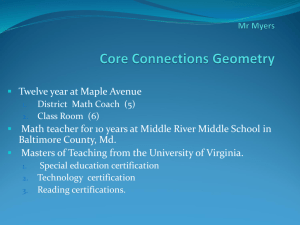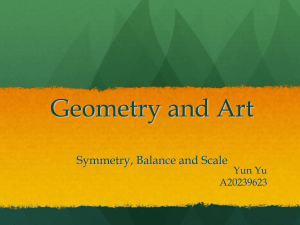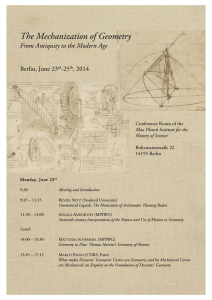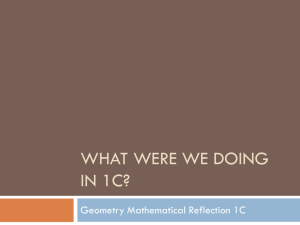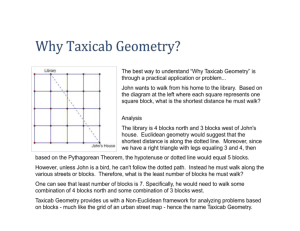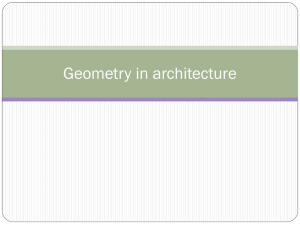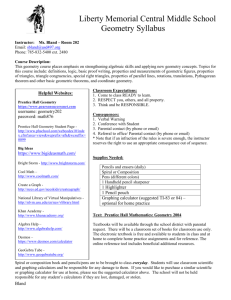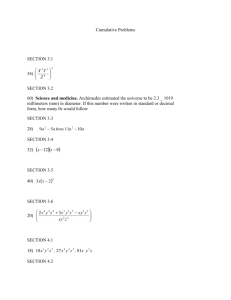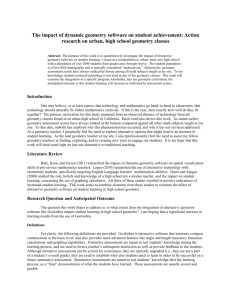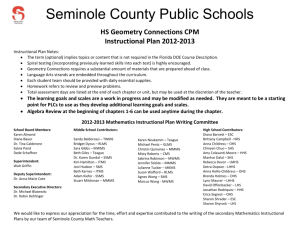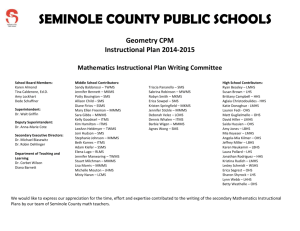Core Connections Geometry - Ankeny Community School District
advertisement
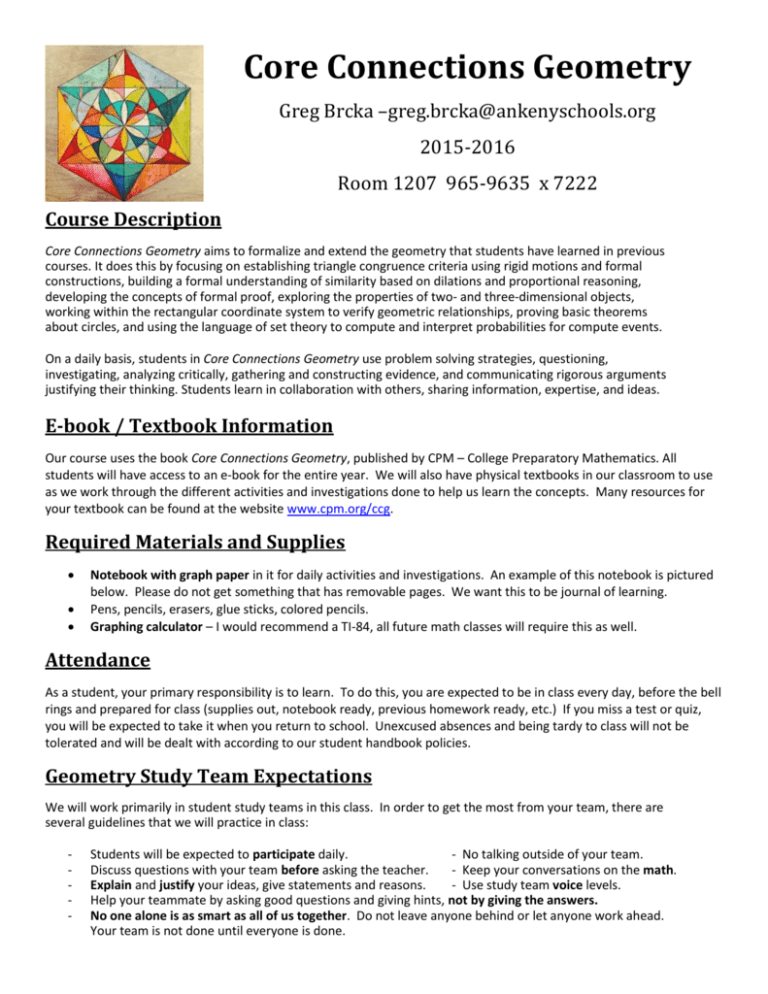
Core Connections Geometry Greg Brcka –greg.brcka@ankenyschools.org 2015-2016 Room 1207 965-9635 x 7222 Course Description Core Connections Geometry aims to formalize and extend the geometry that students have learned in previous courses. It does this by focusing on establishing triangle congruence criteria using rigid motions and formal constructions, building a formal understanding of similarity based on dilations and proportional reasoning, developing the concepts of formal proof, exploring the properties of two- and three-dimensional objects, working within the rectangular coordinate system to verify geometric relationships, proving basic theorems about circles, and using the language of set theory to compute and interpret probabilities for compute events. On a daily basis, students in Core Connections Geometry use problem solving strategies, questioning, investigating, analyzing critically, gathering and constructing evidence, and communicating rigorous arguments justifying their thinking. Students learn in collaboration with others, sharing information, expertise, and ideas. E-book / Textbook Information Our course uses the book Core Connections Geometry, published by CPM – College Preparatory Mathematics. All students will have access to an e-book for the entire year. We will also have physical textbooks in our classroom to use as we work through the different activities and investigations done to help us learn the concepts. Many resources for your textbook can be found at the website www.cpm.org/ccg. Required Materials and Supplies Notebook with graph paper in it for daily activities and investigations. An example of this notebook is pictured below. Please do not get something that has removable pages. We want this to be journal of learning. Pens, pencils, erasers, glue sticks, colored pencils. Graphing calculator – I would recommend a TI-84, all future math classes will require this as well. Attendance As a student, your primary responsibility is to learn. To do this, you are expected to be in class every day, before the bell rings and prepared for class (supplies out, notebook ready, previous homework ready, etc.) If you miss a test or quiz, you will be expected to take it when you return to school. Unexcused absences and being tardy to class will not be tolerated and will be dealt with according to our student handbook policies. Geometry Study Team Expectations We will work primarily in student study teams in this class. In order to get the most from your team, there are several guidelines that we will practice in class: - Students will be expected to participate daily. - No talking outside of your team. Discuss questions with your team before asking the teacher. - Keep your conversations on the math. Explain and justify your ideas, give statements and reasons. - Use study team voice levels. Help your teammate by asking good questions and giving hints, not by giving the answers. No one alone is as smart as all of us together. Do not leave anyone behind or let anyone work ahead. Your team is not done until everyone is done. Grading Setup Your semester grade will be calculated by weighting the 18-week grade 90% and the semester exam 10%. Process: Homework is not optional, it is a requirement. Homework is practice, and students need to be able to make mistakes and not be penalized. However, very few students perform well on assessments without at least some practice. The sooner you learn to do homework for learning – instead of just for points – the better off you will be. Homework completion will be recorded and posted on Infinite Campus. In addition to the homework problems, you will be required to explain your thought processes through writing. Being able to communicate using proper grammar, spelling and punctuation are vital to your success and learning. Homework will count for 10% of your 18-week grade. Product: Tests will always have problems from previous chapters. Often, a topic may be introduced in one chapter, but mastery of the topic is not expected until a later chapter. In that case, the topic will not show up on a test until the later chapter when mastery is expected. Retakes on assessments are available if certain conditions are met, but retakes should be the exception, not the norm. I am going to try something new this year in regards to reporting what a student knows. I will continue to grade assessments using the traditional methods, but I will also report out what a student knows in accordance to the 14 standards that we are required to learn. This is a learning process for me so there may be some bumps along the way. Assessments will count for 90% of your 18-week grade. Minimum Percent 92.5 89.5 86.5 82.5 79.5 76.5 72.5 69.5 66.5 62.5 59.5 Grade A A- B+ B B- C+ C C- D+ D D- Below 59.5 F Getting Extra Help Every student will need extra help at some time during the year. I want each of you to do the very best job you can in your study of geometry. I am willing to help you as much as I can to ensure your success. There are two things that you need to do for yourself though… PRACTICE and ASK QUESTIONS! Here are some different places and times that you can get help: - Before school Monday, Tuesday, Thursday, and Friday Check with me and schedule appointments as needed Your E-book has a section where you can get hints for help on the homework The CPM website, www.cpm.org/ccg, also has a section for Student Support as well as Parent Support (look in the left hand column). How to Contact Me Feel free to e-mail or call with any questions or concerns that you have about the class or how you're doing in the class or anything else on your mind. Also, be sure to sign up for my REMIND messages with your cell-phone. Get REMINDED! Text @gbrc to 81010
